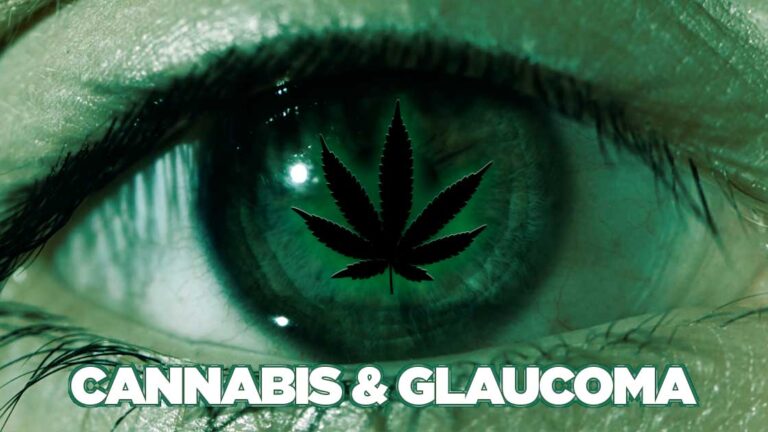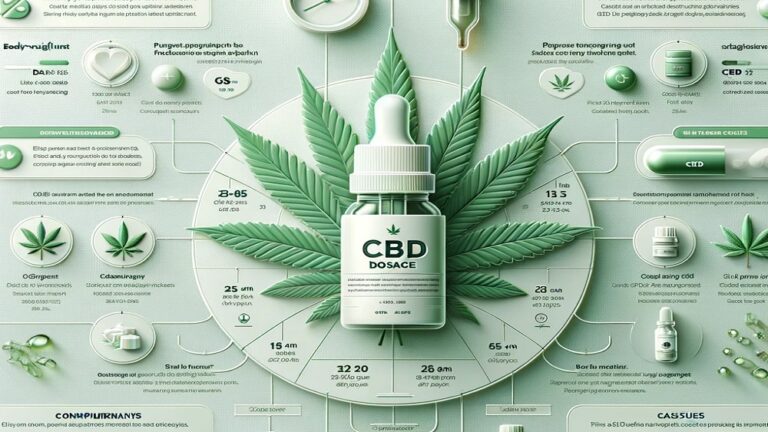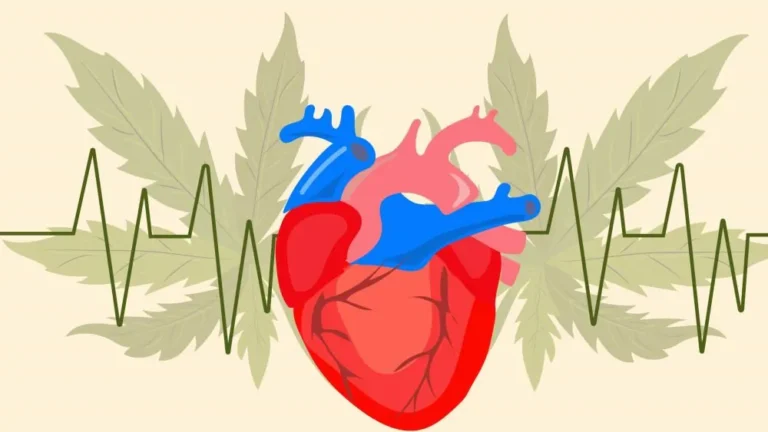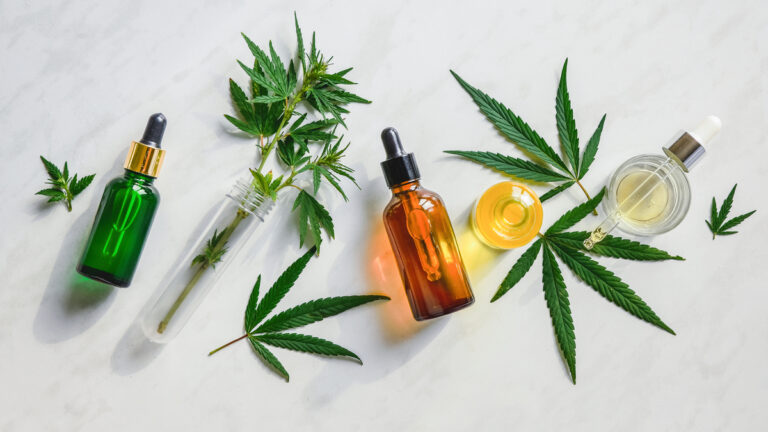
The Surprising Truth About Hemp Seed Oil and CBD: What You Need to Know
Key Points
- Hemp seed oil does not contain significant amounts of CBD, only trace levels (≤75 ppm), which are too low to provide therapeutic effects.
- CBD oil is rich in CBD, extracted from hemp plant flowers, leaves, and stalks, unlike hemp seed oil, which comes from seeds.
- Hemp is not a drug; it’s a variety of Cannabis sativa with less than 0.3% THC, making it non-psychoactive.
- Confusion arises from ambiguous marketing terms like “hemp oil,” which can refer to either hemp seed oil or CBD oil.
- Always check product labels to ensure you’re getting CBD if that’s your goal, as hemp seed oil and CBD oil serve different purposes.
Does Hemp Seed Oil Have CBD?
Hemp seed oil, derived from the seeds of the hemp plant, contains only trace amounts of CBD, typically less than 75 parts per million (ppm). This is far too low to offer the health benefits associated with CBD, such as pain relief or anxiety reduction. If you’re looking for CBD, you’ll need to choose CBD oil, which is extracted from the hemp plant’s flowers, leaves, and stalks and contains much higher CBD concentrations.
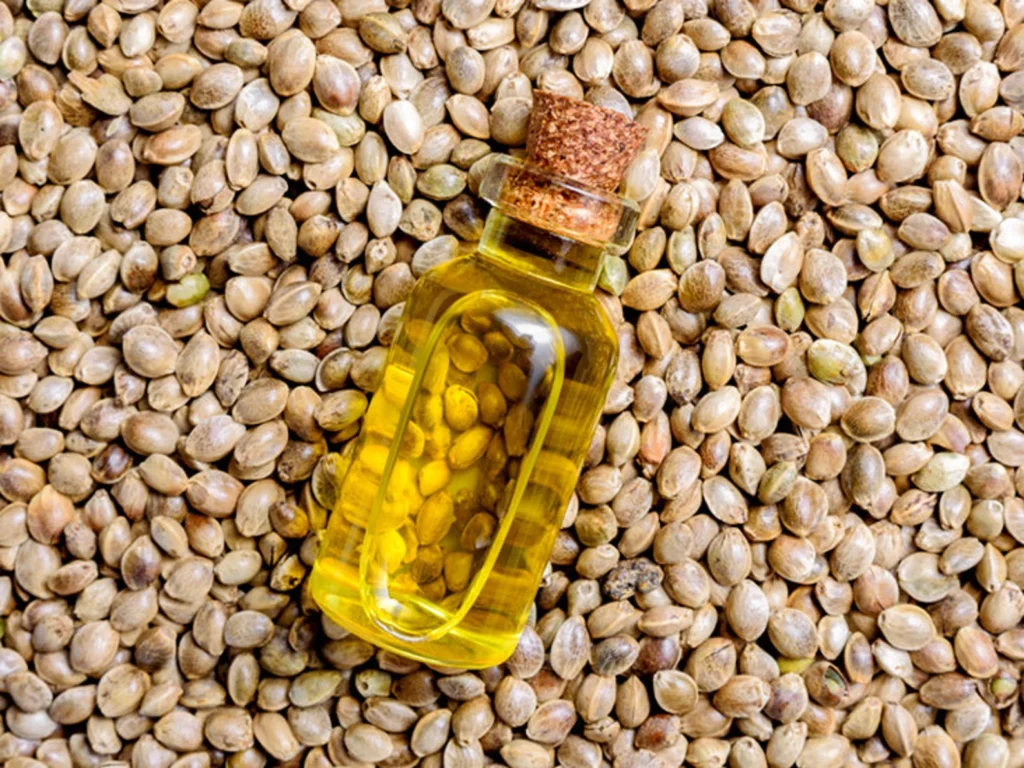
Why the Confusion?
The terms “hemp oil,” “CBD oil,” and “hemp extract” are often used interchangeably, leading to misunderstandings. Hemp seed oil is prized for its nutritional benefits, like omega-3 and omega-6 fatty acids, while CBD oil is used for its potential therapeutic effects. Misleading marketing and lack of consumer education contribute to the mix-up.
Practical Advice
To ensure you’re getting the right product, read labels carefully. Hemp seed oil is great for cooking or skincare but won’t provide CBD’s effects. For CBD benefits, look for products labeled as “CBD oil” or “hemp extract” with clear CBD content listed.
Understanding Hemp Seed Oil and CBD Oil
The rise of hemp and CBD products has sparked widespread interest, but it’s also created confusion. Many people wonder, does hemp seed oil contain CBD? This question stems from the overlapping terminology and marketing of hemp-derived products. Below, we explore the differences between hemp seed oil and CBD oil, clarify whether hemp seed oil has CBD, and address related questions like whether hemp is a drug, if hemp oil contains THC, and the differences _
What is Hemp Seed Oil?

Hemp seed oil is extracted from the seeds of the Cannabis sativa plant, specifically from hemp varieties containing less than 0.3% THC (tetrahydrocannabinol), the psychoactive compound in marijuana. The seeds are cold-pressed, similar to how olive or sunflower oil is made, to produce an oil rich in essential fatty acids, particularly omega-3 and omega-6. These nutrients make hemp seed oil a popular choice for:
- Cooking: Its nutty flavor enhances salads, dressings, and smoothies.
- Skincare: Its moisturizing and anti-inflammatory properties benefit skin health.
- Nutrition: It provides essential amino acids and vitamins, supporting heart and overall wellness.
Importantly, hemp seed oil contains negligible amounts of cannabinoids. According to the Therapeutic Goods Administration (TGA), hemp seed oil may have trace levels of CBD (≤75 ppm) and THC (≤10 ppm). These amounts are so small they have no therapeutic or psychoactive effects.
What is CBD Oil?
CBD oil is derived from the flowers, leaves, and stalks of the hemp plant, where cannabinoids like cannabidiol (CBD) are concentrated. CBD is a non-psychoactive compound known for potential benefits such as reducing anxiety, alleviating pain, and improving sleep. Unlike hemp seed oil, CBD oil is produced using methods like CO2 or solvent extraction to isolate CBD and other compounds, including terpenes and flavonoids, which may enhance its effects (known as the entourage effect).
CBD oil typically contains 100–1,000 mg of CBD per serving, depending on the product’s strength. It may also contain trace amounts of THC (less than 0.3% in legal hemp-derived products), but not enough to cause a “high.”
Does Hemp Seed Oil Contain CBD?
To directly address the question: hemp seed oil does not contain significant amounts of CBD. While it may have trace levels (≤75 ppm), these are far too low to provide the therapeutic benefits associated with CBD, such as those found in CBD oil. For comparison, CBD oil contains hundreds or thousands of times more CBD, making it the go-to choice for those seeking CBD’s effects.
This distinction is critical because consumers might purchase hemp seed oil expecting CBD benefits, only to find it ineffective for their needs. The Vermont Agency of Agriculture emphasizes that hemp seed oil, made from seeds, contains only trace cannabinoids, unlike CBD oil, which is extracted from the plant’s biomass.
Does Hemp Have CBD in It?
The hemp plant (Cannabis sativa with <0.3% THC) does contain CBD, primarily in its flowers, leaves, and stalks. However, the seeds, used to produce hemp seed oil, do not contain significant CBD. This is why hemp seed oil and CBD oil are distinct products with different uses and compositions.
Hemp vs. CBD: Understanding the Difference
The terms “hemp” and “CBD” are often confused, but they refer to different things:
| Aspect | Hemp | CBD |
|---|---|---|
| Definition | A variety of Cannabis sativa with <0.3% THC, used for industrial, food, and extract products. | A non-psychoactive compound (cannabidiol) found in hemp and marijuana. |
| Source | Entire plant, including seeds, stalks, and fibers. | Extracted from flowers, leaves, and stalks of hemp or marijuana. |
| Uses | Fiber (textiles, paper), seeds (food, oil), extracts (CBD oil). | Therapeutic purposes (e.g., anxiety, pain relief, sleep aid). |
| CBD Content | Present in flowers/leaves/stalks, not in seeds. | High concentrations in CBD oil or hemp extract. |
The confusion arises because CBD is derived from hemp, but not all hemp products (like hemp seed oil) contain CBD. Healthline notes that this overlap in plant origin leads to frequent mislabeling.
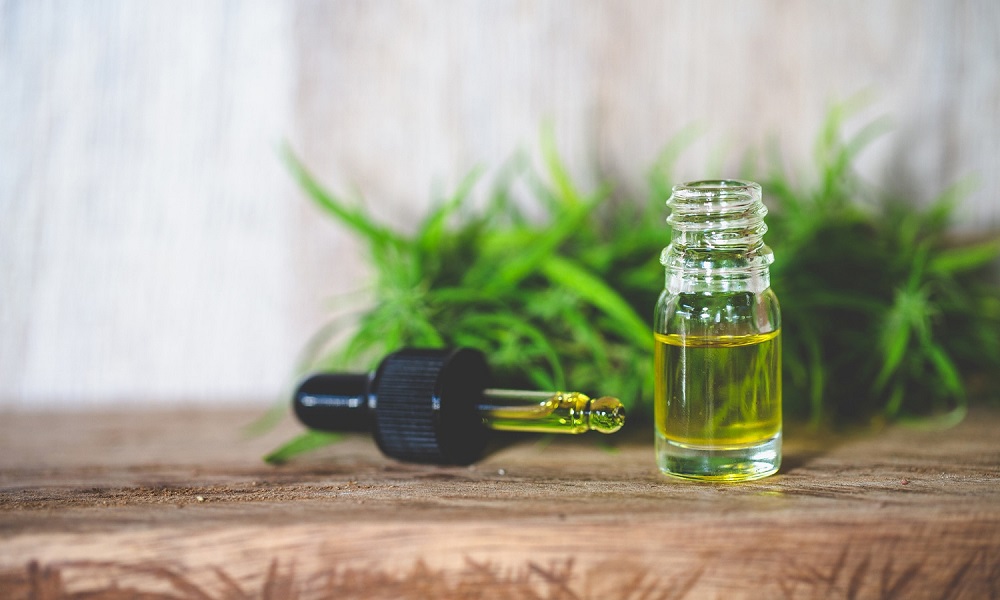
Is Hemp a Drug?
Hemp is not a drug. It’s a variety of Cannabis sativa with less than 0.3% THC, making it non-psychoactive. Unlike marijuana, which can contain up to 28% THC, hemp does not produce a “high.” It’s cultivated for industrial purposes (e.g., textiles, paper), food (e.g., hemp seeds), and extracts (e.g., CBD oil). The Michigan State University article highlights that public confusion often stems from hemp’s relation to marijuana, but their legal and chemical profiles differ significantly.
Does Hemp Oil Contain THC?
The term “hemp oil” can be ambiguous, referring to either:
- Hemp Seed Oil: Contains negligible THC (≤10 ppm), safe for consumption and drug testing. Forbes confirms it’s virtually THC-free.
- CBD Oil (sometimes called hemp oil): May contain trace THC (≤0.3%) in full-spectrum products, but broad-spectrum or isolate versions are THC-free.
If avoiding THC is a concern (e.g., for drug tests), hemp seed oil is the safer choice due to its minimal THC content.
Does Hemp Seed Oil Contain THC?
Specifically, hemp seed oil contains very low levels of THC (≤10 ppm), as noted by the TGA. This amount is insignificant and does not cause psychoactive effects or affect drug tests. It’s considered safe for use in food, cosmetics, and supplements.
What is Hemp Extract?

Hemp extract is a broad term for any extract from the hemp plant. It can include:
- Full-Spectrum Hemp Extract: Contains CBD, other cannabinoids (CBC, CBG), terpenes, and trace THC (<0.3%).
- Broad-Spectrum Hemp Extract: Similar to full-spectrum but with THC removed.
- CBD Isolate: Pure CBD, with no other compounds.
As explained by the Vermont Agency of Agriculture, hemp extract is typically made from the plant’s floral material, unlike hemp seed oil, which comes from seeds. Hemp extract vs. CBD: All CBD oil is a type of hemp extract, but not all hemp extract is CBD oil, as it may contain other compounds or lower CBD levels.
Hemp Oil vs. CBD Oil
The comparison of hemp oil vs. CBD oil often causes confusion due to inconsistent terminology. Here’s a detailed breakdown:
| Feature | Hemp Seed Oil | CBD Oil |
|---|---|---|
| Source | Seeds of the hemp plant. | Flowers, leaves, stalks of the hemp plant. |
| Main Components | Omega-3, omega-6 fatty acids, vitamins, minerals. | CBD, other cannabinoids, terpenes, flavonoids. |
| CBD Content | Trace (≤75 ppm). | High (100–1,000 mg per serving). |
| THC Content | Trace (≤10 ppm). | Trace (≤0.3%) in full-spectrum; none in broad-spectrum/isolate. |
| Uses | Cooking, skincare, nutritional supplements. | Therapeutic (e.g., pain, anxiety, sleep). |
| Legal Status | Legal, minimal regulation. | Legal, but may face stricter regulations due to cannabinoids. |
Medical News Today emphasizes that hemp seed oil lacks the CBD content needed for therapeutic effects, while CBD oil is designed for those benefits.
Common Misconceptions
Several factors contribute to the confusion between hemp seed oil and CBD oil:
- Ambiguous Labeling: Terms like “hemp oil” can refer to either product, leading to misinformed purchases. LloydsPharmacy notes that marketing often blurs these lines.
- Plant Origin: Both oils come from Cannabis sativa, causing assumptions about shared properties.
- Lack of Awareness: Consumers may not know that seeds lack significant cannabinoids, unlike the plant’s biomass.
To avoid mistakes, check product labels for CBD content and avoid assuming “hemp oil” means CBD oil. Good Hemp advises consumers to look for explicit CBD content on labels.
Practical Tips for Consumers
- Read Labels: Look for “CBD oil” or “hemp extract” with specified CBD content (e.g., 500 mg CBD per bottle). Avoid products labeled solely as “hemp seed oil” if seeking CBD.
- Understand Your Needs: Use hemp seed oil for nutrition or skincare; use CBD oil for potential therapeutic benefits.
- Check THC Content: If concerned about drug tests, choose hemp seed oil or THC-free CBD products (broad-spectrum or isolate).
- Source Reputable Brands: Purchase from companies that provide third-party lab testing to verify CBD and THC content.
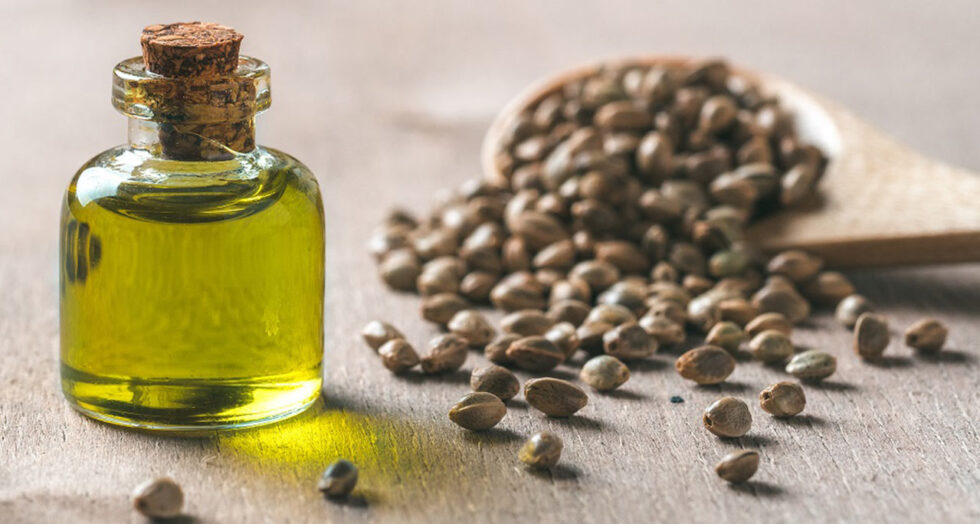
Conclusion
The surprising truth is that hemp seed oil does not contain significant CBD, making it unsuitable for those seeking CBD’s therapeutic effects. While the hemp plant contains CBD in its flowers, leaves, and stalks, the seeds used for hemp seed oil do not. This distinction is crucial for consumers navigating the crowded market of hemp and CBD products. By understanding the differences between hemp seed oil vs. CBD oil, whether hemp is a drug, and the nuances of hemp extract vs. CBD, you can make informed choices. Always read labels, verify CBD content, and choose products that align with your health and wellness goals.
